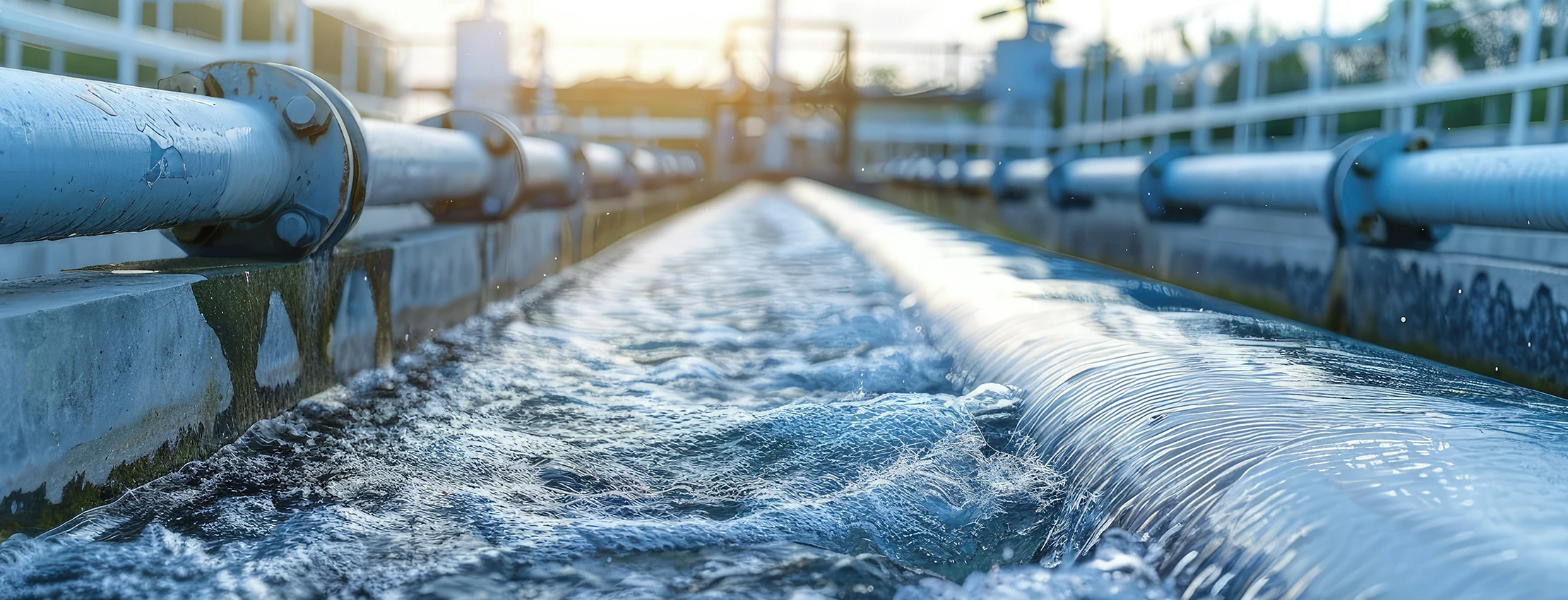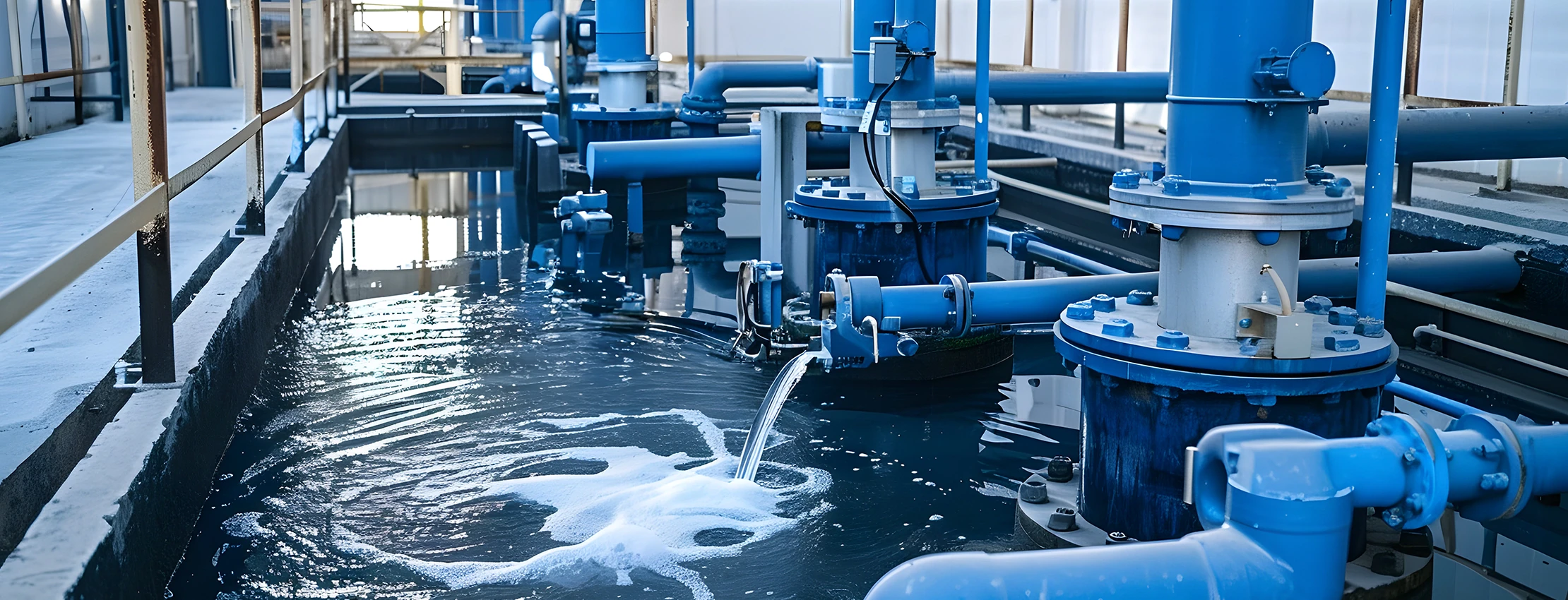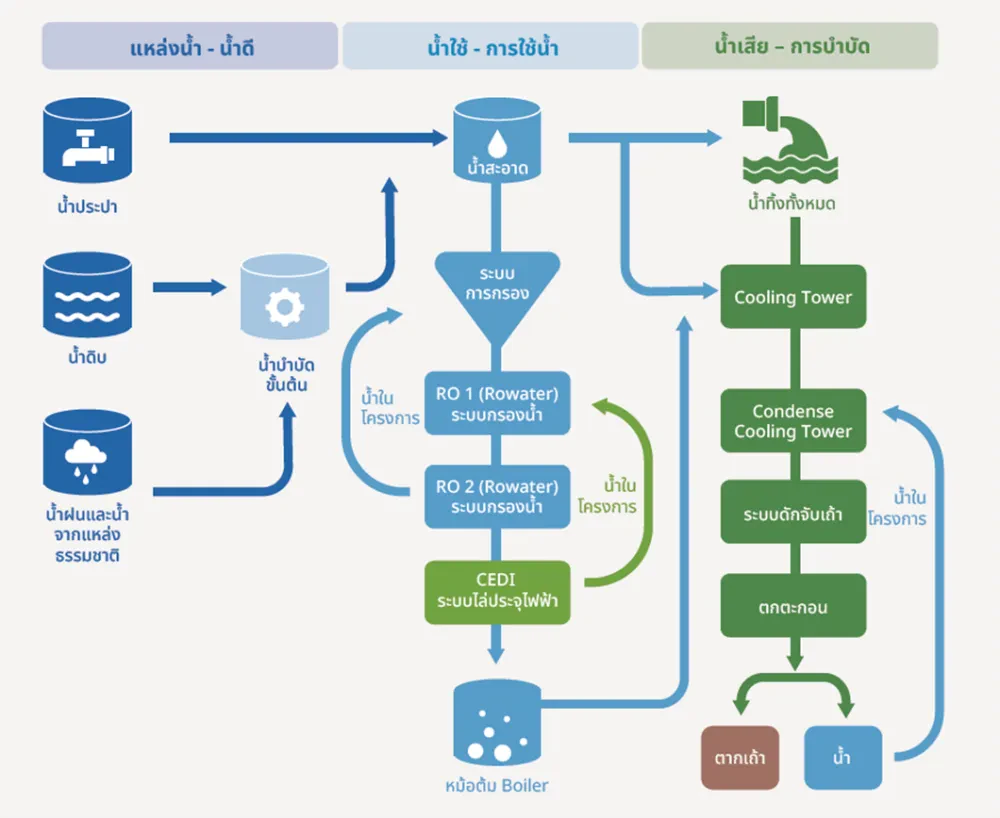
Water Management
Importance and Mission
Efficient and sustainable water management is a crucial factor in long-term sustainability, operational efficiency, and environmental responsibility. Although solar and wind power require minimal water for electricity generation, water is still needed for cleaning and maintenance processes. Biomass energy, however, requires significant water usage for cooling systems and steam generation, making responsible water management essential to minimize environmental impact.
Water scarcity and climate change have intensified the need for efficient water use. By reducing water consumption, reusing water, and optimizing cooling and cleaning processes, the Group can lower operational costs, ensure compliance with environmental regulations, and mitigate water scarcity risks.
Moreover, responsible water management strengthens the Group’s ESG performance by supporting sustainable resource use and minimizing impacts on ecosystems, while enhancing business resilience. Prioritizing water efficiency and conservation enables the Group to align with global sustainability frameworks and ensures long-term operational security.
SDGs in the Water Management
Goals and Performance Highlights
Goals
Performance Highlights 2024
This table can be scrolled horizontally
| Water Resources | SPN | SS | SN | UPT | WINCHAI | SEG | TGC | TTQN | SSE | TTTV | Total |
|---|---|---|---|---|---|---|---|---|---|---|---|
| Water consumption by source type (unit: cubic meters) | |||||||||||
| Surface water | 0 | 0 | 0 | 255,963 | 0 | 0 | 0 | 0 | 0 | 0 | 255,963 |
| Gound water | 0 | 682 | 0 | 1 | 0 | 0 | 157 | 1,950 | 0 | 0 | 2,790 |
| Municipal supply | 704 | 2.03 | 0 | 58,201 | 232 | 0 | 0 | 0 | 0 | 520 | 59,660 |
| Total water consumption | 704 | 684 | 0 | 314,165 | 232 | 0 | 157 | 1,950 | 0 | 520 | 318,412 |
| Water consumption rate per unit of production (unit: cubic meters per megawatt-hour) | |||||||||||
| Water use per MWh | 0.01 | 0.09 | 0 | 4.202 | 0.002 | 0 | 0.006 | 0.03 | 0 | 0.003 | 0.472 |
| Water reduction from based year 2023 (%) | 0.27% | 27.95% | 0 | 1.13% | N/A | 0 | 24.61% | 10.80% | 0 | 25.26% | 13.60% |
| Wastewater/discharge volume (unit: cubic meters) | |||||||||||
| Wastewater Volume | 0 | 0 | 0 | 0 | 185.6 | 0 | 125.6 | 1,560 | 0 | 416 | 2,287 |
| Wastewater reduction from based year 2023 (%) | 0 | 0 | 0 | 0 | N/A | 0 | 17.16% | 12.52% | 0% | 32.29% | 0.3% |
| Recycled water volume (unit: cubic meters) | |||||||||||
| Recycled Water | 704 | 684 | 0 | 314,165 | 0 | 0 | 0 | 0 | 0 | 0 | 315,553 |
| Increase in Recycled Water from based year 2023 (%) | 100% | 100% | 0 | 100% | 0 | 0 | 0 | 0 | 0 | 0 | 99.10% |
Management Approach
Implement proactive measures focused on reducing water usage, increasing water reuse, and improving wastewater management efficiency through the following key approaches:
Reduce water use in production by
10%
by 2030
- Enhance water-intensive processes: optimize cooling systems, steam generation, and cleaning efficiency.
- Apply water-saving technologies: e.g., reuse RO reject water for biomass ash capture and apply nano-coating on solar panels to reduce cleaning water use.
Promote employee engagement to reduce water use by
30%
by 2030
- Build awareness and drive behavior change: organize training, campaigns, and incentives for responsible water use.
- Set departmental water reduction targets: encourage all units to eliminate unnecessary water use.
Achieve
100%
water reuse by 2030
- Collect and reuse process water: reclaim water from cooling, steam generation, cleaning, and rainwater.
- Implement closed-loop systems: design systems for continuous recycled water use to reduce fresh water intake.
Efficient management of water and wastewater from all sources
- Comply with quality standards before environmental discharge: treat wastewater to national/international standards.
- Develop water risk management plans: assess local risks and develop mitigation strategies for water shortages.





